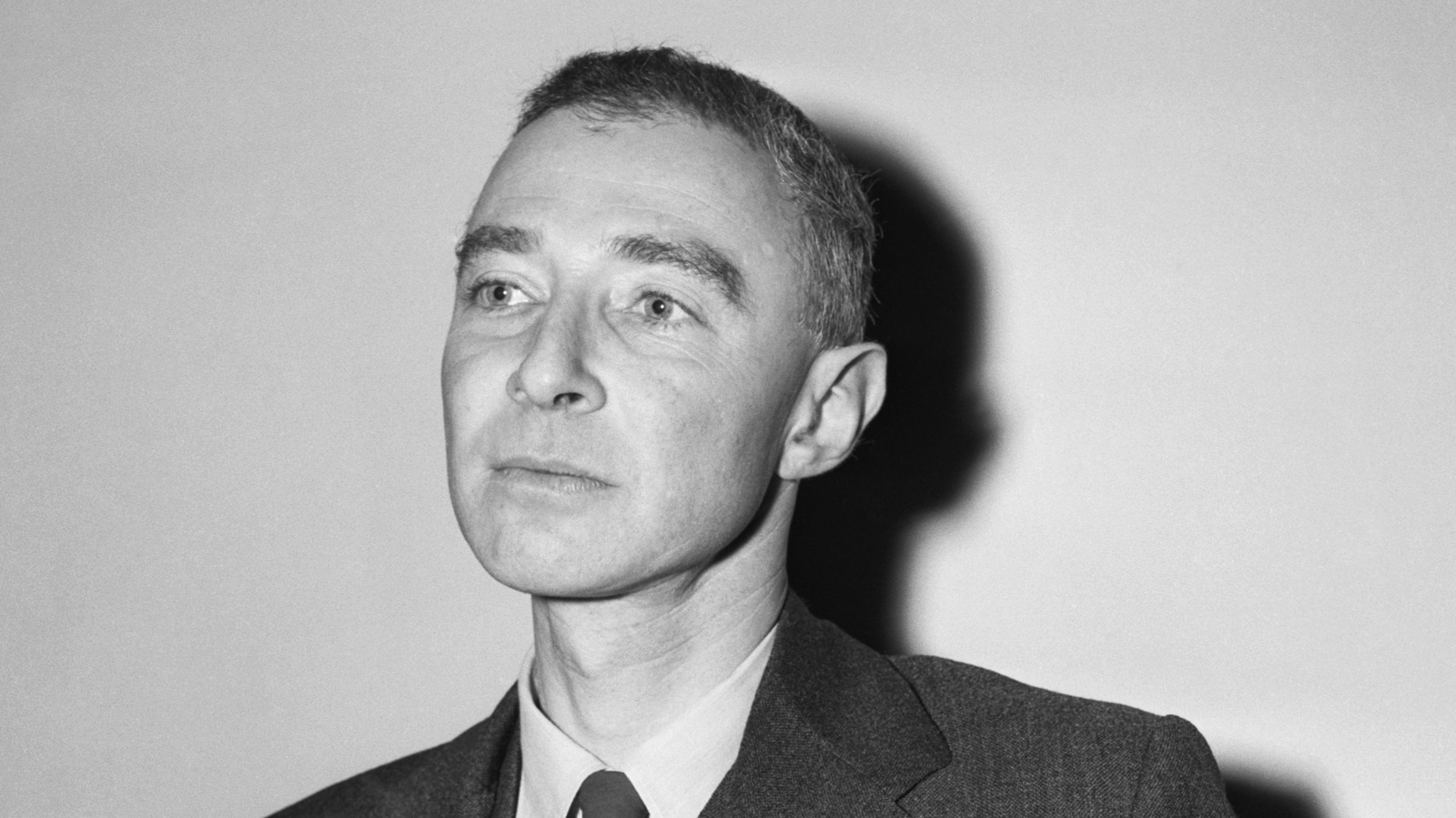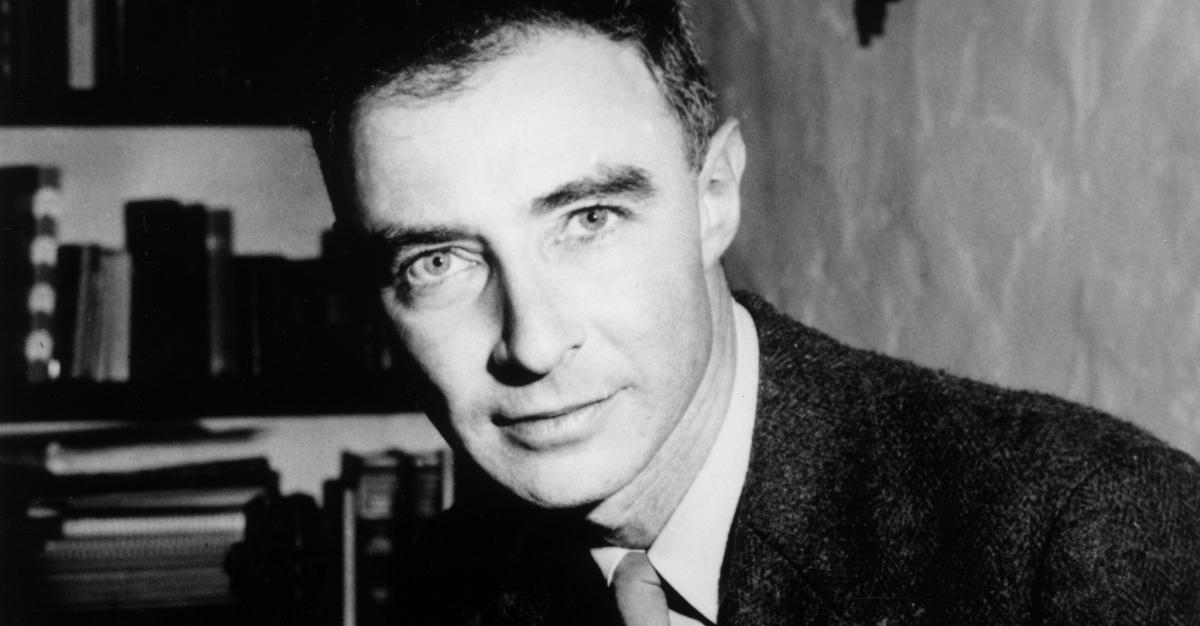Was the man who ushered in the atomic age ultimately undone by the very elements he sought to harness? J. Robert Oppenheimer, the brilliant physicist known as the "father of the atomic bomb," met his demise on February 18, 1967, a consequence of a life lived on the precipice of scientific discovery and, perhaps, self-destruction. His story, a tapestry woven with threads of genius, ambition, and the profound weight of his creation, continues to captivate and challenge us today.
Born Julius Robert Oppenheimer on April 22, 1904, in New York City, he would grow to become a figure of immense influence, a man whose intellect and drive reshaped the world. His life, though celebrated for its groundbreaking achievements, was also marked by complexities and contradictions. The release of Christopher Nolan's 2023 film, "Oppenheimer," has ignited renewed interest in his life and legacy, prompting a deeper exploration of the man behind the myth, and the circumstances that led to his untimely death.
| Category | Details |
|---|---|
| Full Name | Julius Robert Oppenheimer |
| Date of Birth | April 22, 1904 |
| Place of Birth | New York City, United States of America |
| Date of Death | February 18, 1967 |
| Age at Death | 62 years |
| Cause of Death | Throat Cancer |
| Zodiac Sign | Taurus |
| Known For | Director of the Los Alamos Laboratory during the Manhattan Project; "Father of the Atomic Bomb" |
| Education | Harvard University, University of Cambridge, Georg-August University of Gttingen |
| Spouse | Katherine "Kitty" Oppenheimer |
| Children | Peter Oppenheimer, Katherine "Toni" Oppenheimer |
| Notable Achievements | Led the Manhattan Project; Pioneered theoretical physics research |
| Reference | Atomic Archive - J. Robert Oppenheimer |
The story of Oppenheimers final years is a somber tale, a stark contrast to the dazzling intellectual feats that defined his earlier life. Two years before his passing, in 1965, he received the devastating diagnosis of throat cancer. This news marked the beginning of a protracted battle, a struggle against a disease that would ultimately claim his life. The very man who helped unlock the secrets of the atom was now confronting a more personal and intimate enemy within his own body.
- Pepe Aguilar Net Worth How Rich Is The Mexican Music Icon In 2024
- Lee Majors Net Worth 2024 How Rich Is The Actor
The relentless nature of his illness and the treatments he underwent only served to highlight the frailty of human existence, even for a mind as brilliant as Oppenheimers. Unsuccessful radiation therapy and chemotherapy offered little respite. The cancer, fueled perhaps by a lifetime of chain smoking, proved to be a formidable adversary. This habit, a constant companion throughout his adult life, may have been a contributing factor in the development of his cancer. The scientific community and the public alike had to face the reality of Oppenheimer's declining health, understanding that even the most brilliant minds are not immune to the ravages of disease. The details of his final days, though shrouded in the privacy of his illness, reveal a man wrestling with mortality, a profound ending to a life that had redefined the nature of warfare and the very fabric of the modern world.
The context of Oppenheimer's death is crucial to understanding his legacy. He passed away approximately two decades after the devastating bombings of Hiroshima and Nagasaki. This timeframe placed his death in the context of a world forever changed by the weapon he helped create. While the events of the Second World War were still keenly felt, the Cold War cast a long shadow, with the threat of nuclear annihilation looming large. The world was grappling with the ethical implications of his work, examining the responsibility of scientists and the moral complexities inherent in the pursuit of scientific advancement.
The film "Oppenheimer," released in 2023, meticulously reconstructs the historical period, focusing on the key moments of Oppenheimer's life, from his education and early scientific pursuits to the Manhattan Project and its aftermath. The film explores not only the scientific and technical challenges of the atomic bomb project, but also the ethical and moral dilemmas faced by Oppenheimer and his colleagues. The films focus, however, remains on Oppenheimers life, not on the mechanics of his death, respecting the intimate nature of the disease that ultimately took him.
- Ari Fletcher Net Worth How This Influencer Built Her Empire
- Debi Mazars Net Worth How Much Is The Actress Worth
The legacy of Oppenheimer is multifaceted and complex. He is revered for his scientific genius and his pivotal role in the development of the atomic bomb. Yet, he is also criticized for the devastating consequences of his creation and the moral ambiguities surrounding its use. His political affiliations and the post-war security hearings he faced further complicate the picture, highlighting the tension between scientific progress and ethical responsibility. The challenges he faced, the controversies that swirled around him, and the choices he made during a time of profound historical upheaval continue to provoke debate and discussion.
The life of Julius Robert Oppenheimer, from his birth to his death, encapsulates a period of immense transformation in science and in the world. From his early intellectual curiosity to his leadership of the Los Alamos laboratory, his contributions were nothing short of groundbreaking. His death at 62, a result of throat cancer, marked the end of an extraordinary life, one shaped by science, war, politics, and, ultimately, the tragic consequences of his own creation. The world, in gaining insight into the life of J. Robert Oppenheimer, is left with a profound understanding of human potential and the often-unforeseen consequences of human endeavor.
The story of Oppenheimer's death highlights the ultimate vulnerability of even the most brilliant minds. The diagnosis of throat cancer in 1965 signaled a shift, not just in Oppenheimer's personal life, but also in the public perception of this scientific icon. His final years saw him grappling with illness, undergoing unsuccessful treatments, and facing the inevitability of his mortality. The details of his final days underscore the human reality beneath the scientific achievements, reminding us that even the most celebrated figures are not immune to the universal experience of suffering and loss. His death, a consequence of his lifelong habit of smoking and the aggressive nature of his cancer, serves as a stark reminder of the fragility of human life.
Oppenheimer's contribution to the Manhattan Project and the subsequent development of the atomic bomb forever changed the world. His leadership at the Los Alamos Laboratory, his scientific brilliance, and his dedication to the project were crucial to its success. But with this achievement came a profound burden. The creation of such a destructive weapon forced him to confront the moral and ethical implications of his work, a struggle that weighed heavily on him in the years following the war. The weight of these implications, the responsibility for the use of the bomb, and the aftermath of its deployment undoubtedly contributed to the complexities of his later life.
Oppenheimers story has continued to be a source of fascination and debate. The release of Christopher Nolans film has ignited a renewed interest in his life. The film provides a detailed portrait of the man, his scientific achievements, the personal and professional challenges he faced, and the complex moral questions his work raised. The film, like the man himself, is a subject of intense scrutiny and discussion, with audiences and critics alike engaging with the complexities of his legacy.
In considering Oppenheimers death, we are brought to the intersection of science, ethics, and the human condition. His passing serves as a reminder of the limitations of even the most brilliant minds and the profound impact of our choices. His legacy continues to challenge us to grapple with the complexities of scientific progress, the moral responsibilities that come with it, and the lasting impact our actions have on the world. J. Robert Oppenheimer, the man who unlocked the secrets of the atom, ultimately succumbed to the ravages of disease, leaving behind a legacy that continues to shape our understanding of science, history, and the human spirit.



Detail Author:
- Name : Jane Witting Sr.
- Username : chance.farrell
- Email : ygleason@yahoo.com
- Birthdate : 1988-01-12
- Address : 68231 Raynor Run Suite 771 Lubowitzborough, IL 36767-2621
- Phone : 313-912-6269
- Company : Olson-Muller
- Job : Punching Machine Setters
- Bio : Rerum reprehenderit explicabo aut asperiores. Voluptatibus eaque ut fuga itaque.
Socials
tiktok:
- url : https://tiktok.com/@robel2003
- username : robel2003
- bio : Sunt doloremque voluptatum aut at commodi error.
- followers : 5894
- following : 14
linkedin:
- url : https://linkedin.com/in/luisrobel
- username : luisrobel
- bio : Est animi consequatur non.
- followers : 5271
- following : 1074